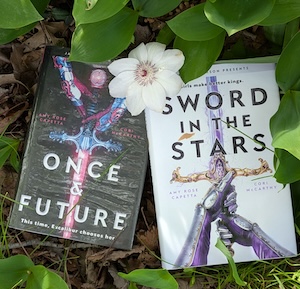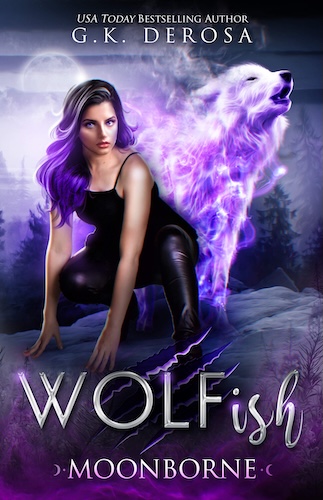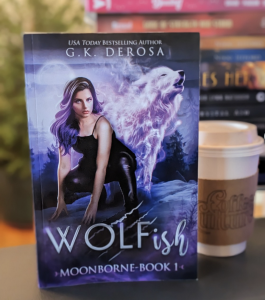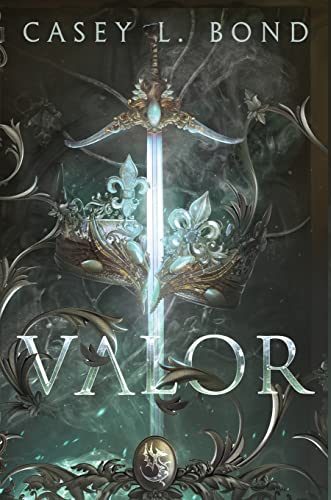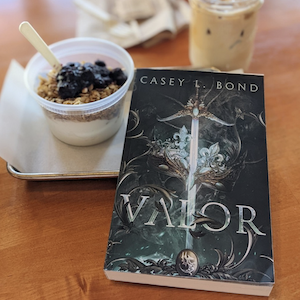I’ve had Sword in the Stars (by Amy Rose Capetta & Cori McCarthy*) on my bookshelf for a while. I think someone put it in the little free library. I borrowed Once & Future from the public library so that I could read the duology together.
*Side note, I’ve seen the authors’ names spelled differently. So, I’ve done the best I can here by going by what is on these covers.
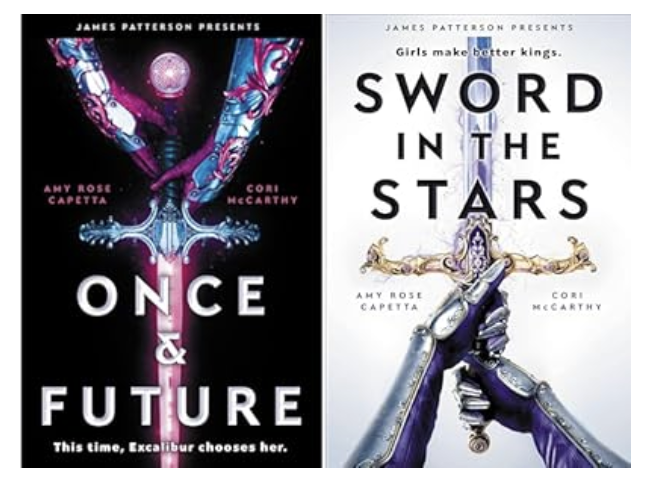
Once and Future King as a teenage girl — and she has a universe to save.
I’ve been chased my whole life. As a fugitive refugee in the territory controlled by the tyrannical Mercer corporation, I’ve always had to hide who I am. Until I found Excalibur.
Now I’m done hiding.
My name is Ari Helix. I have a magic sword, a cranky wizard, and a revolution to start.
When Ari crash-lands on Old Earth and pulls a magic sword from its ancient resting place, she is revealed to be the newest reincarnation of King Arthur. Then she meets Merlin, who has aged backward over the centuries into a teenager, and together they must break the curse that keeps Arthur coming back. Their quest? Defeat the cruel, oppressive government and bring peace and equality to all humankind.
No pressure.
Reviews:
Once & Future:
My experience with this book was very up and down. I loved the racially diverse, queer/gender queer, gender-bent retelling of ‘King’ Arthur and their knights in space aspect of the book, and I found the banter really funny. But…and I hope I can say this in a way that doesn’t come off horribly. The humour aspect got stale after a while, and the constant reminder of the queering of the story became overly heavy-handed.
Never is there a knight who happens to be bi, or non-binary, etc., even after we’ve been told. ALWAYS it is a cisgender or gay who happens to be a knight, if that makes sense. After a while, it felt self-congratulatory on the part of the authors; see how with-it we are?! We left no one out. Which is great on one hand, but it just…well, it left very little room for the characters to be anything else.
Here’s the pretty gay one. Here’s the strapping cisgendered, heterosexual one. Here’s the hip non-binary, disabled one. Here is the asexual one. Here are the lesbians and the neurodivergent one. Look at all the different family structures they came from, lesbian moms, happy heterosexuals, adoptions, abandonments, they’re all represented! After a while, even their names muddle, but never their identity or form of self-expression. I wanted so much more for all of them than to be an identity placeholder.
So, I loved the book in the beginning, flagged through the middle, such that I wasn’t sure I’d continue to the second (even as it sat on my coffee table), and then came back around to enjoying the ending. I will read the second one, I think, but I’m not going into it with anywhere near as high hopes as I did the first.
Sword in the Stars:
I enjoyed this second book more than the first because the twistiness of time added an interesting dimension that the first lacked. I do, kind of, feel the story would have held together a little better if the characters had been in their 20s, rather than teens. But all in all, it wrapped up nicely, and I appreciated the meta-ness of the last few chapters, as well as what I have decided is a little bit of an easter egg relating to the state of America in 2020 when the book was published.
Other Reviews:
Steph’s Story Space: Once & Future

